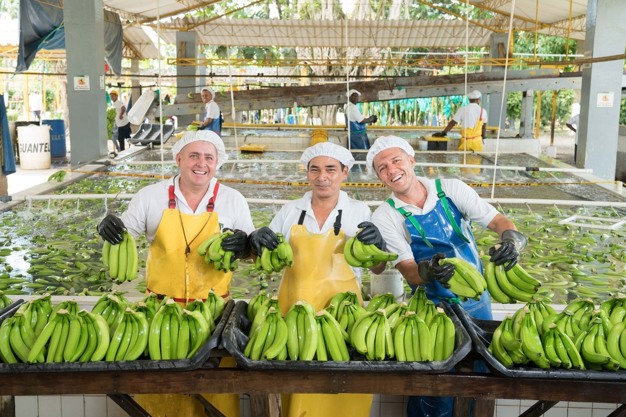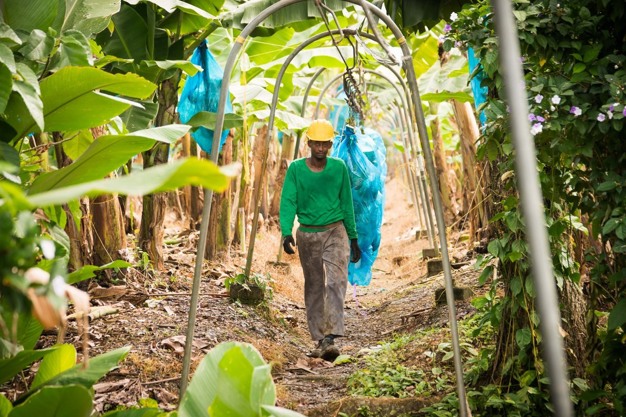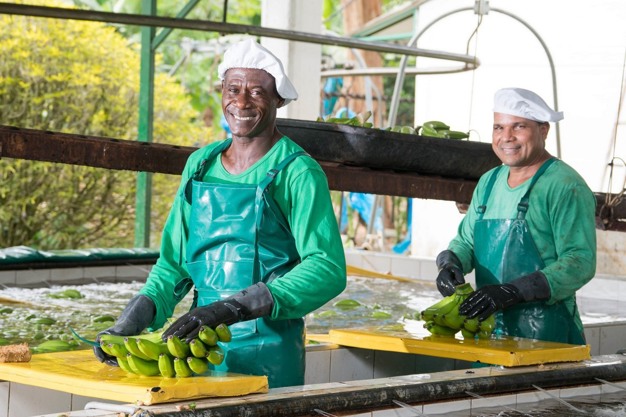The Colombian banana industry has made great progress in its recovery, with increased exports to South Korea and its main market, Europe, last year (2023). This year, the industry wants to use the different spaces at the international level to ask for more support and recognition of the shared responsibility of the entire value chain, as well as to combat the effects of climate change and Fusarium.

Dr. Emerson Aguirre Medina, president of the Colombian Banana Growers Association (Augura), says the slight increase in banana prices last year was necessary. "Today, the cost of producing bananas with the quality standards required by certification standards involves high investment costs, so it is necessary to continue improving prices to achieve decent prices.”
Aguirre Medina continues, "That is why, at the Association, we have been insisting to buyers and consumers in all international scenarios that all these demands cannot be targeted only at producers; markets must have a shared responsibility to ensure the sustainability of living wages for workers and environmental sustainability in production. We are actively participating in all scenarios where we must continue to raise awareness on this issue and, we reiterate, that shared responsibility must be an objective and commitment of all actors in the chain to make the banana agribusiness viable. Not only on the Atlantic side where the producers are, we already have on the agenda for 2024 our presence in different fairs and forums where we will continue to generate this discussion on the subject."

He says that staying in a market as demanding as the banana export market has meant a real revolution in the Colombian industry in terms of production, technology and in social aspects. "For many years, our member companies have faced this enormous challenge with the support of the Association. Today we can proudly say that 100% of our member companies have the certifications required by the market and are oriented towards production with social and environmental sustainability. Together with the leading union (Sintrainagro), we have ratified the Colombian banana sector's commitment to social dialogue and worker association. Nearly 92% of workers are unionized, which demonstrates the importance of the articulated work between employers and workers to guarantee a balance within the economic activity."
Colombian bananas not affected by Panama Canal delays
"Our main market is the European Union, which together with the United Kingdom represents 82% of the volume exported. This operation is carried out entirely through the Atlantic, including the 16% that goes to the American market, with its ports of arrival on the East Coast, so the impact that the passage of the Canal has had has not been significant for our operation," states Aguirre Medina.
However, it is climate change that weighs most heavily on his industry. "Climate change is a factor that has affected many of the fruit exporting countries, the numbers in 2023 will be lower than in 2022. In Colombia there was a strong impact in the first semester due to an intense summer that was mitigated by a good weather pattern for the second semester. We continue to work hard at our research center to improve the productive infrastructure and to design strategies that allow us to mitigate these adverse effects of climate".

Containing the Fusarium challenge
He says this is being done through a lot of collaboration, with research as a key area. This includes research into new varieties that are resistant to Fusarium TR4. "We need to continue with research that will lead us to find a variety that is hopefully resistant or less susceptible to Fusarium TR4 and that is commercially acceptable. To do this we are promoting work with prestigious institutions such as EMBRAPA Brazil - CIRAD France, among others. The arrival of Fusarium TR4 in Colombia in 2019 meant a real phytosanitary alert about a disease for which we had already been training since 2015. Thanks to this early bet, we were able to advance the necessary agreements with the Colombian Agricultural Institute, ICA, the highest phytosanitary authority in the country, and work on the necessary bio-security protocols to prevent further spread. Today, five years later, out of 53,000 hectares planted with export-type bananas, the disease is only present on about 300 hectares," explains Aguirre Medina.
He says Augura plans to work even harder in 2024 to achieve its goals. "We will continue to work on all the technical and technological elements that will allow us to improve our productivity and competitiveness, so that we can not only guarantee the supply of existing markets, but also venture into new ones," concludes Aguirre Medina.
For more information:
Dr. Emerson Aguirre Medina
Colombian Banana Growers Association
Email: Presidente@augura.com.co
